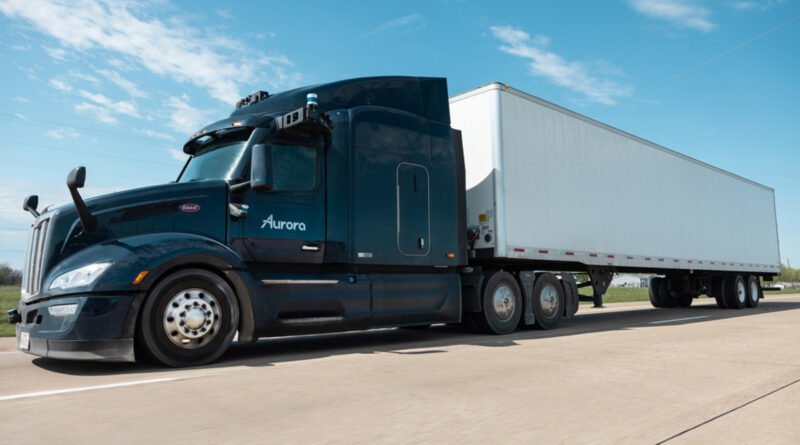Transport technology startup funding plunged 43 percent in March
Private equity and other investors funneled $394 million into U.S. transportation technology startups in March, about a 43 percent decline from the previous month, according to data compiled by Automotive News.
Investment by venture capitalists, companies and others into burgeoning advanced transportation technology companies has cooled sequentially from $1.16 billion in January to $690.5 million in February and then again to the March figure.
All told, startups in the sector have raised nearly $2.8 billion this year. Automotive News started compiling the figures for 2023 and does not have comparable data for the prior year.
Investment in mobility technology companies is slowing because of high-interest rates and the fallout from the Silicon Valley Bank run and failure. If there is an investment bright spot, it’s in battery technology companies. That sector’s investment activity is driven in large part by tax provisions in the federal government’s Inflation Reduction Act, which favors on-shoring battery production.
Globally, deal activity in the mobility technology sector for the fourth quarter of 2022 was flat going into 2023, Jonathan Geurkink, a senior analyst at PitchBook, told Automotive News.
“We are seeing investment shift away from the activity in and around autonomous driving and the ride-hailing and last mile stuff seems to be tailing off as well,” Geurkink said. “I think there are areas certainly in battery technology that look interesting. We’re probably going to put out an analyst note in the next month or so on sodium battery technology and some of the investments there.”
Of the 47 investments tracked from January to April thus far, 14 were in battery or fuel cell technology companies, three were in electric vehicle charging firms and seven were in logistics and trucking startups.
From January to March, investment in transportation technology startups plummeted 66 percent.
Investors funded 15 U.S.-based companies in January.
Headlining January was General Motors’ $650 million investment in Lithium Americas Corp. to develop Nevada’s Thacker Pass mine with the company jointly. Lithium Americas Corp. is headquartered in Vancouver, British Columbia, but focuses its lithium extraction operations on the U.S. and Argentina.
The U.S. automaker’s investment in the joint company, Lithium Nevada Corp., is contingent on the outcome of a lawsuit brought by a Nevada rancher, conservation groups and Native American tribes in the U.S. District Court of Nevada. The plaintiffs claim the mine’s creation would cause irreversible environmental damage. The court is expected to issue a decision by the end of 2023. Thacker Pass is the largest known source of lithium in the U.S. and the third largest in the world.
That same month, Ritchie Bros, a heavy truck and equipment auctioneer in Chicago, received $500 million from New York hedge fund Starboard Value LP via stock purchases.
Investment in American automotive and mobility companies dropped 40 percent from January to February. Battery technology companies got the most attention that month, with four of them attracting investment. Out of the remaining nine companies receiving investments in February, three were automotive artificial intelligence firms.
Michigan battery startup Our Next Energy Inc. had the largest investment in February with $300 million raised in its series B funding round on a valuation of $1.2 billion.
Amogy, a Brooklyn, N.Y., company developing fuel cells powered by ammonia received the largest investment in March with a $139 million capital raise.
“We’ve found that the rate of startup formation in the mobility space hasn’t really slowed all that much,” said Quin Garcia, co-founder and managing director of Silicon Valley venture capital firm Autotech Ventures. “What has slowed or rather shrunk, is the number of dollars going into these companies, the size of the funding rounds has shrunk substantially, compared to the bubbly days of 2020 and 2021 during COVID.”
Garcia told Automotive News he expects to invest in four to five startups in 2023. Autotech closed its $230 million fund, which invests in seed-stage startups and targets A, B and C series funding rounds of mobility-related companies.
The valuation of mobility startups has also dropped since 2020, Garcia said.
He estimated the value of early-stage mobility companies dropped 30 percent, the valuation of mid-stage startups dropped 50 percent, and companies that went public via the special purpose acquisition process declined 80 percent since 2021.
April’s big investments look to be in the advanced technology trucking sector, with Aurora Innovation filing documents to raise $350 million and Nikola Corp.’s $100 million offering, both in the public markets. Both companies went public through the special purpose acquisition process. Nikola paid dearly by selling off preferred shares and common stock to raise additional capital. Aurora’s fund raising efforts could also be expensive.
On the battery technology front, GM led a $50 million investment round in lithium extraction and refining company Energy Exploration Technologies Inc. of Austin, Texas. EV battery testing startup Liminal followed up its February $17.5 million series A2 funding round with a $2.75 million grant from the California Energy Commission in April.
Spring Free EV, a San Francisco company that developed a marketplace platform for small and mid-size businesses looking to electrify their fleets, raised $31 million through debt and equity investments from Boston private equity firm Spring Lane Capital in April.
“Companies are still getting formed, but resources are getting concentrated into a lesser number of startups,” Garcia said. “Which means during this downturn, you have to be a really strong startup to get funding, so you have to have really high-caliber teams with really high-caliber ideas.”
Source : Autonews.com




